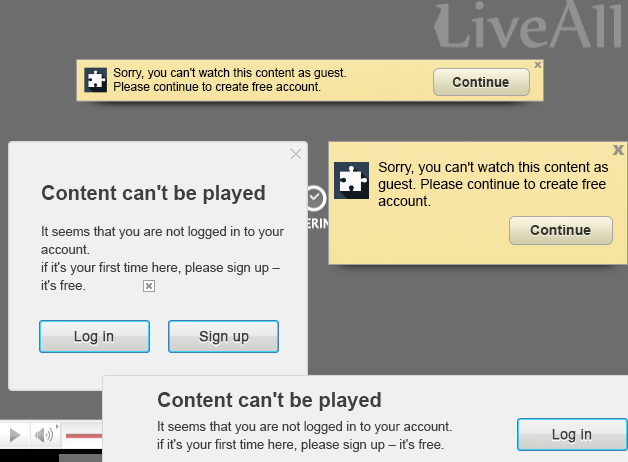 During the past couple of years there has been a steady wave of reports claiming that so-called ‘pirate’ sites are some of the worst offenders when it comes to hoisting junk, malware and viruses upon their users.
During the past couple of years there has been a steady wave of reports claiming that so-called ‘pirate’ sites are some of the worst offenders when it comes to hoisting junk, malware and viruses upon their users.
Usually commissioned or funded by entertainment industry groups, these reports often lead to a sense of déjà vu, with phrases such as “content theft” and “organized crime” painting an apocalyptic vision for anyone daring to use a torrent or streaming portal.
The stark warnings are somewhat ironic. As the movie, music and software industries continue their crusade to have mainstream advertisers boycott any site they have not authorized, file-sharing sites are increasingly forced into the advertising backwaters. This means that the chances of bad ads appearing in front of users is increasing.
Although it will never be said in public, anti-piracy groups are well aware of the importance of diminishing the user experience on pirate sites. If they’re difficult to access (web-blocking) and risky to use (dodgy ads), the free content on offer might not be so attractive. It’s cynical and also makes somewhat of a mockery of their efforts to ‘warn’ about the dangers of using pirate sites.
But as with all things in life the proof of the pudding is in the eating and there are millions of file-sharers gobbling up content, enjoying the experience, not falling ill, and returning to sites day after day. That in itself suggests that the catastrophic impact suggested in various reports isn’t playing out in the real world.
However, it would be irresponsible to suggest that these industry reports are all absolute nonsense. While admittedly completely self-serving, several have raised very good points about the dubious quality of advertising appearing on various ‘pirate’ portals.
It’s a bitter pill but it needs to be said. While there are thousands that don’t, there are large numbers of pirate sites that fall way below the standards those who pay their bills deserve. Why some site operators sink to these levels isn’t always clear, but aggressive redirects, misleading advertising, fake virus warnings and malware are always unacceptable.

For some reason streaming sites seem to be among the main offenders and in the worst case scenarios they bombard the user with an endless stream of dubious advertising techniques that can only be of major annoyance to their visitors.While acknowledging the return they get from these ads is minimal (hence their volume), from a business perspective it seems baffling to use customers as things to be beaten into submission.
Unless sites really don’t care whether a user comes back again tomorrow or not, it makes absolutely no sense to treat them and their machines with disrespect. Of course, some popups, ‘direct download’ buttons and affiliate sponsors are to be expected, but wouldn’t it be better to at least maintain some level of sanity?

Of course, one response to aggressive advertising is for users to become more aware of their ad blocking options. As a result they then join the growing ranks of users who not only use all the facilities of pirate sites without contributing a dime to their upkeep, but feel entirely justified in doing so. This raises another irony.
Some might question whether we should be surprised that people who obtain movies and music for free don’t want to contribute financially to pirate sites. But human nature is not that straightforward. There are droves of people who are not only happy to contribute to the health of a pirate site, but do so while supporting the likes of Netflix, Spotify and Steam.
In the end and when the entertainment industries finally sort themselves out, it will be a battle between those who treat their customers properly and those who have no idea. Release windowing expensive content over geo-blocked services is annoying, no doubt, but pirate sites laden with junk aren’t the solution.
Both sides need to treat their users with respect to maintain or increase market share. Let battle commence.





